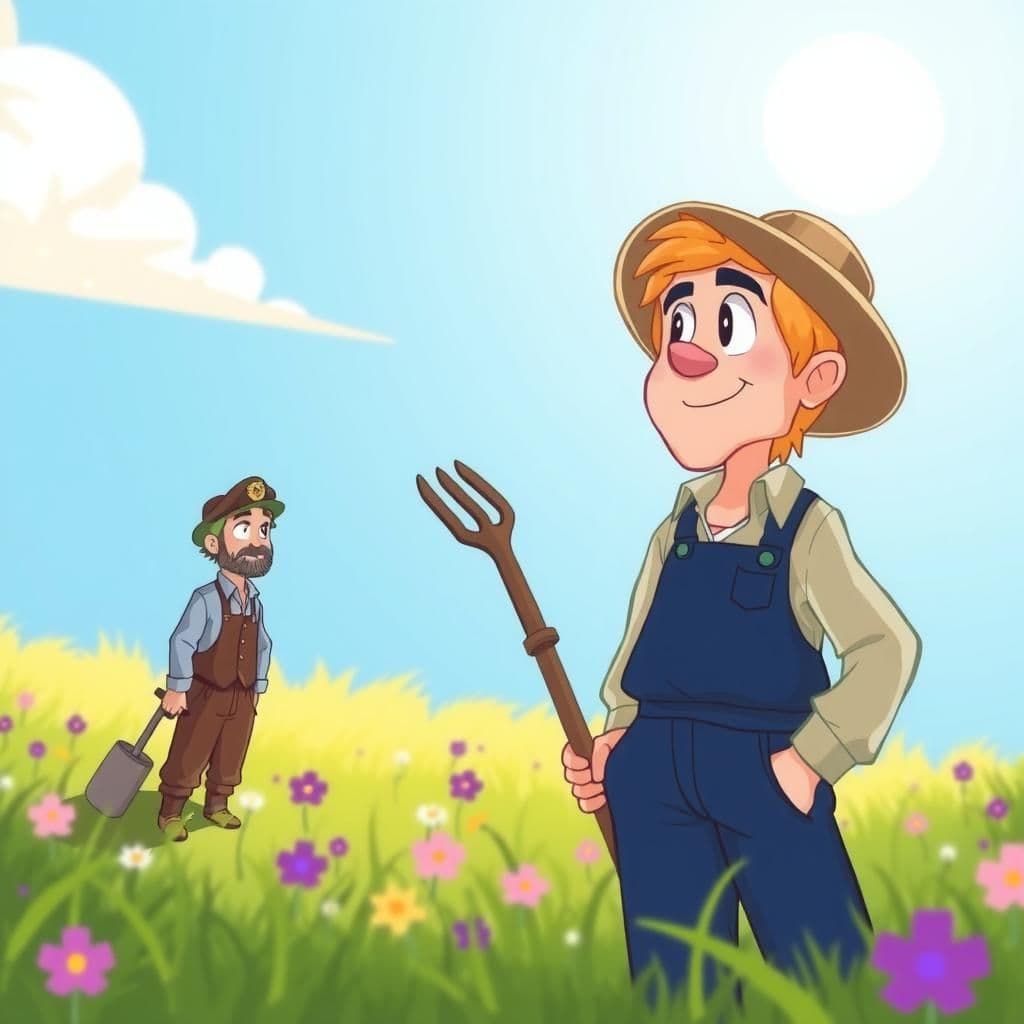The Humble Peasant
In "The Humble Peasant," a thought-provoking moral story reminiscent of famous fables, an Office Seeker laments the futility of ambition while envying the peaceful life of a contented peasant. However, when he approaches the peasant to share his reflections, he is surprised to find the peasant seeking a government position, revealing that even those who appear humble may secretly aspire for power and status. This captivating tale serves as a reminder that ambition can be found in unexpected places, making it a fitting moral story for class 7 and beyond.

Reveal Moral
"The pursuit of ambition can lead to disappointment, but even the seemingly content can harbor their own aspirations for power."
You May Also Like

The Cock and the Jewel
In "The Cock and the Jewel," a cock, while searching for food, stumbles upon a precious jewel but declares it worthless compared to a simple grain of barley. This engaging moral tale emphasizes that practical needs surpass material wealth, illustrating a key lesson found in many creative moral stories. Through this animal story with moral, readers are reminded that true value lies in fulfilling basic necessities rather than chasing after superficial riches.

A Flourishing Industry
In "A Flourishing Industry," a foreign traveler asks a local about American industries, only to discover that the man's business is thriving in an unexpected way—he manufactures boxing gloves for verbal sparring rather than physical fights. This humorous twist highlights the heartwarming moral that competition can be both playful and uplifting, making it a meaningful story with moral lessons about creativity and resilience.

At the Pole
In "At the Pole," a Daring Explorer reaches the North Pole, only to be confronted by a Native Galeut who questions the moral significance of his achievement. Admitting he sought only glory, the Explorer reveals that the Scientist of the Expedition, absorbed in his instruments, has overlooked the practical implications of their discovery. This tale serves as a motivational story with moral lessons about the value of purpose and reflection, making it a compelling addition to short story collections with moral themes for students.